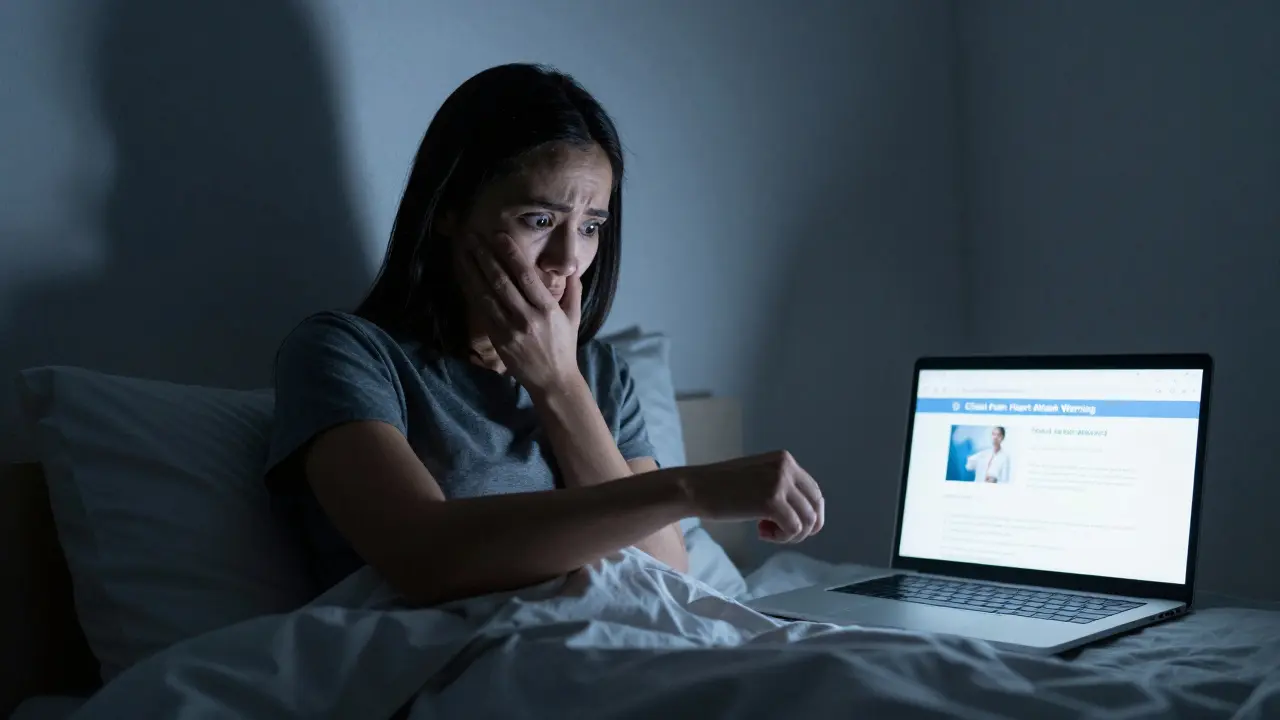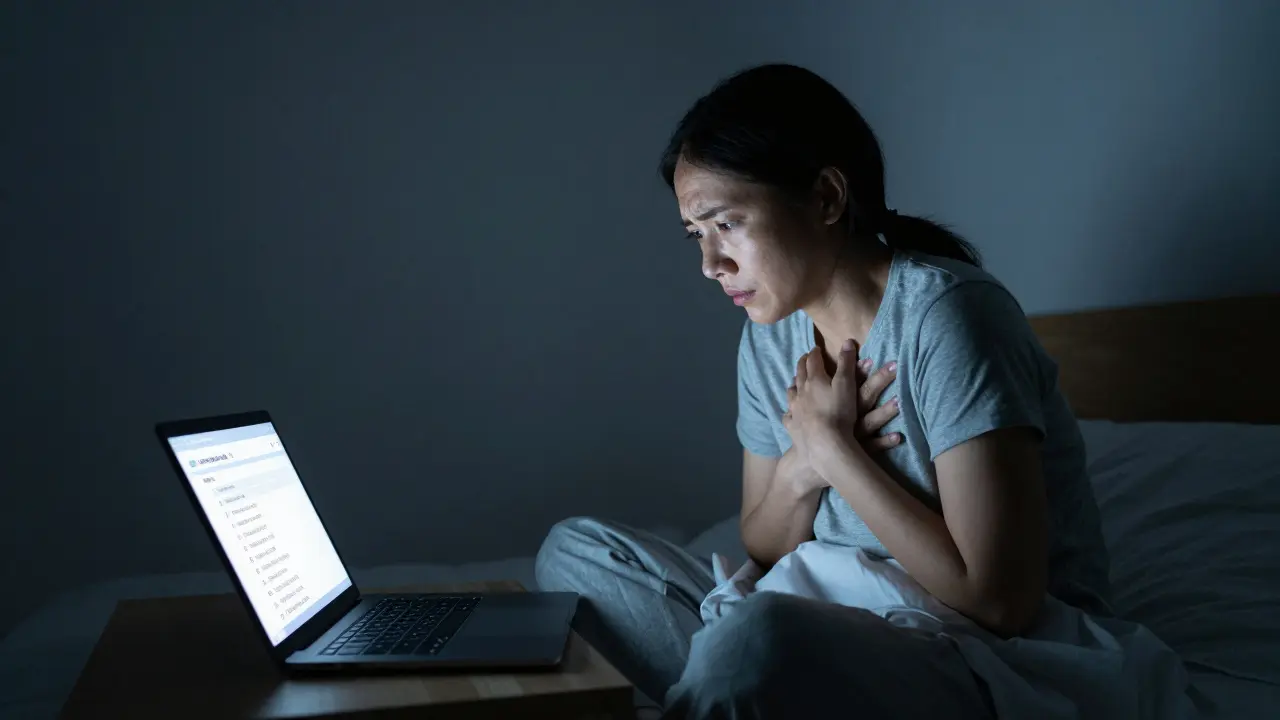Health Anxiety: Clear Steps to Calm Worry
Worrying about your health can feel overwhelming and constant. If you find yourself checking symptoms, searching for answers online, or avoiding appointments because fear takes over, you’re not alone. This page gives plain, practical actions you can use today to reduce that tight, buzzing worry and feel more in control.
Quick calming tools you can use right now
When anxiety spikes, quick tools help stop the loop. Try a simple breathing exercise: breathe in for 4 seconds, hold 2, breathe out for 6. Repeat five times. Use grounding when fear feels real—name 5 things you see, 4 things you can touch, 3 sounds, 2 smells, 1 taste. Move your body: a short walk loosens stress chemicals and shifts focus. These steps don’t solve the root cause, but they lower the panic enough to think clearly.
Another immediate option is aromatherapy. Scents like lavender or frankincense can ease tension for some people. Carry a small roller or inhale from a tissue when you need a quick lift. If a tech approach suits you, try a basic biofeedback app or device that shows your heart rate. Seeing your body calm down on screen often helps you believe it’s possible and trains your response over time.
Build habits that reduce health worry
Short-term tricks help, but routines change how often worry comes back. Practice a daily five-minute mindfulness habit—sit, notice your breath, let thoughts pass without chasing them. Keep a worry journal: when a fear shows up, write what you saw, what you felt, how long it lasted, and one action you took. Recording patterns makes worries less mysterious and gives you data to work with.
Limit symptom-searching online. Set a 10-minute research window and stop when time’s up. Replace scrolling with one helpful action: call your doctor, do a breathing set, or go outside. Regular exercise, steady sleep, and three balanced meals reduce baseline anxiety. Cut back on caffeine if it spikes your heart rate or fuels panic.
Use therapy tools when worry interferes with life. Cognitive-behavioral techniques help you test thoughts and change unhelpful habits. Biofeedback in a clinic or with guided apps can teach you to lower physical signs of anxiety. Group classes in mindfulness or stress reduction create steady practice and peer support.
Know when to seek more support. If anxiety disrupts work, relationships, or sleep for weeks on end, talk to a clinician. If panic includes fainting, chest pain, or other severe symptoms, seek immediate medical care. Health anxiety is treatable—small steady steps change how often worry shows up and how long it lasts.
Pick one new habit this week. Try the breathing pattern after waking, or pause before searching symptoms online. Little changes add up, and each one chips away at the power of health anxiety.

Health Anxiety: The Silent Epidemic
Health anxiety is a growing mental health crisis where people obsess over illness despite medical reassurance. It causes real physical symptoms, drains relationships, and wastes resources. The good news? It's highly treatable with therapy and lifestyle changes.
Read More
Health Anxiety: How to Stop Constantly Worrying About Being Sick
Health anxiety makes normal body sensations feel like life-threatening illnesses. Learn how to break the cycle of fear, stop obsessive checking, and reclaim your life without relying on constant medical reassurance.
Read More
Understanding and Coping with Health Anxiety: Personal Journeys and Expert Advice
Living with health anxiety can be an overwhelming experience, often magnifying normal bodily sensations into catastrophic thoughts. This article delves into the real-life stories of individuals dealing with health anxiety, offering insights into their daily challenges and successes. Through expert advice and practical tips, it aims to help readers better understand and manage this condition. By highlighting personal experiences, the article seeks to provide comfort and encouragement to those facing similar fears. Armed with knowledge and empathy, this piece serves as a hopeful guide for anyone navigating the complexities of health anxiety.
Read More
Navigating Health Anxiety During a Pandemic: Practical Strategies and Tips
In the midst of a global health crisis, many of us find ourselves grappling with heightened levels of anxiety, specifically health anxiety. This article delves into understanding health anxiety in the context of a pandemic and offers practical strategies for managing such feelings. With the aim of providing useful and helpful information, it emphasizes the importance of self-care, seeking professional help, and adopting a balanced perspective towards news consumption. Through practical suggestions and strategies, this article seeks to offer solace and effective coping mechanisms to those dealing with health anxiety in these challenging times.
Read More
Conquering Health Anxiety: Proven Techniques and Strategies
Dealing with health anxiety can feel like a never-ending struggle. However, it's possible to regain control and improve your well-being with the right strategies. This comprehensive guide explores effective techniques for managing health anxiety, from understanding its roots to integrating practical coping mechanisms into your daily life. You'll learn the importance of balancing professional advice with self-help methods, the role of mindfulness and lifestyle adjustments, and how to foster a supportive environment for recovery. Perfect for anyone looking to turn the tables on health anxiety.
Read More
Navigating Health Anxiety: The Impact of Nutrition on Emotional Well-being
Understanding the connection between what we eat and how we feel is more than a tale of calories and nutrients — it's about our mental well-being. This article delves into the role of nutrition in managing health anxiety. It provides insights into how certain foods can decrease stress levels, improve mood, and provide a sense of control over one's health. Strategies for incorporating nutritious foods into your diet and practical tips to minimize health-related worries will be explored.
Read More
Overcoming Health Anxiety: A Comprehensive Guide
Hey folks, I've just delved into a mind-blowing guide on battling the sneaky beast known as health anxiety. It's like a rollercoaster ride, but instead of screaming for fun, you're freaking out over every sneeze! This guide teaches you to calm your inner hypochondriac, offering strategies for overcoming the obsessive worry over health. It's like equipping you with an 'anxiety extinguisher' to put out the wild flames of worry! So, if you're constantly Googling symptoms, then this guide might just be your ticket to a more peaceful, worry-free life.
Read More